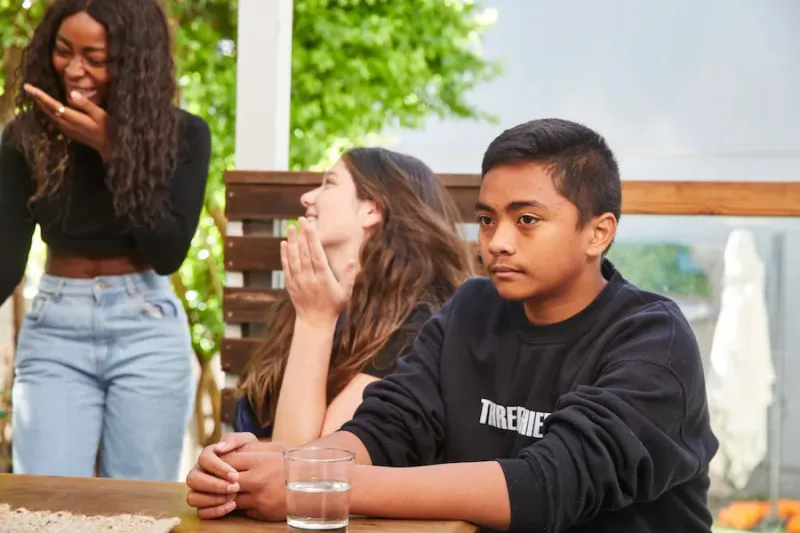Psychologists Share 11 Subtle Signs a Friendship Could Be Emotionally Exhausting

Not all friendships come with flashing warning lights. Some unravel quietly, slipping into emotionally exhausting territory before you even realize what’s happening. You laugh together, share memories, maybe even consider them family—but something feels off. You leave hangouts more drained than uplifted, anxious instead of comforted. According to psychologists, these aren’t just passing moods—they could be subtle signs your friendship is taking more than it gives. Whether it’s one-sided effort, emotional manipulation, or hidden resentment, the damage adds up. Before you brush it off as “just a phase,” it might be time to take a closer look at the signs.
1. You’re Always the One Making Effort

Friendship should be a two-way street, but somehow you’ve become the only one driving. You initiate every text conversation, plan all get-togethers, and remember their important dates while they rarely return the favor.
This imbalance creates an exhausting pattern where you’re constantly giving without receiving. Over time, this one-sided dynamic drains your emotional resources and leaves you questioning your worth in the relationship.
Psychologists note that healthy friendships involve mutual effort and reciprocity. When one person consistently carries the relationship, resentment inevitably builds, leaving you emotionally depleted rather than fulfilled.
2. Their Negativity Clouds Every Conversation

Nothing ever seems good enough for this friend. Every conversation spirals into complaints, criticism, or pessimistic outlooks, leaving you feeling like you’ve been caught in an emotional storm.
While everyone needs to vent occasionally, chronic complainers create a toxic atmosphere that seeps into your own mindset. You might notice yourself becoming more negative or feeling emotionally exhausted after spending time with them.
Mental health experts explain that constant negativity is contagious. Your brain actually works harder when processing negative information, making these interactions particularly draining compared to positive or balanced conversations.
3. Your Feelings Get Brushed Aside

“That’s nothing compared to what happened to me!” Sound familiar? When you share something important, this friend quickly dismisses your experience or redirects the conversation to themselves.
This lack of empathy leaves you feeling unheard and emotionally unsupported. You might find yourself hesitating to share personal struggles, knowing they’ll be minimized or overlooked entirely.
Empathy forms the foundation of meaningful friendships. When a friend consistently fails to acknowledge your emotional reality, it creates a subtle but powerful energy drain as you work harder to validate your own experiences while simultaneously supporting theirs.
4. You Feel Manipulated Into Giving More

Masters of emotional manipulation make you feel guilty for having boundaries. They might use subtle tactics like backhanded compliments, passive-aggressive comments, or dramatic reactions when they don’t get their way.
The friendship starts feeling like an emotional chess game where you’re constantly sacrificing your pieces. You might notice yourself agreeing to things you don’t want to do just to avoid their reaction.
Psychologists recognize this pattern as emotional hijacking – when someone leverages your empathy against you. The mental energy spent navigating these manipulative tactics leaves you exhausted and questioning your own judgment.
5. You’re Constantly On Guard Around Them

Remember when hanging out was fun and relaxing? Now you carefully monitor everything you say, fearing their unpredictable reactions or harsh judgments.
This hypervigilance is exhausting. Your brain stays in a constant state of alert, trying to avoid potential landmines in conversation. Even casual get-togethers feel like navigating an emotional obstacle course.
Mental health professionals call this “walking on eggshells” – a clear sign of an unhealthy relationship dynamic. The constant tension prevents authentic connection and drains your mental resources as you work overtime to manage someone else’s potential reactions.
6. Meeting Up Feels Like a Chore

Your phone lights up with their name, and your stomach immediately knots. What used to bring joy now triggers a sense of obligation and dread.
This visceral reaction is your body’s wisdom speaking. The anticipatory anxiety before seeing them and the emotional fatigue afterward are clear signals that something isn’t right in the friendship.
According to relationship psychologists, healthy connections energize us even when they involve serious topics. When you consistently feel depleted rather than replenished after interactions, your body is sending an important message about the relationship’s impact on your wellbeing.
7. You Can’t Be Your Authentic Self

Around this friend, you’ve become a watered-down version of yourself. Maybe you hide your accomplishments to avoid their jealousy, downplay your interests because they mock them, or suppress opinions that might trigger conflict.
This constant self-editing is emotionally exhausting. Humans need authentic connection to thrive, and pretending to be someone you’re not creates internal discord.
Psychologists emphasize that healthy friendships should expand rather than shrink your sense of self. When you feel unable to express your true personality, interests, or viewpoints, the relationship silently drains your energy by forcing you to maintain an exhausting façade.
8. The Conversation Never Turns To Your Life

Hours pass, and somehow they haven’t asked a single question about you. The friendship feels strangely one-dimensional, with them as the main character and you as the supporting cast.
This conversational imbalance reveals a concerning lack of curiosity about your life. You might realize you know everything about their work drama, dating life, and daily frustrations while they couldn’t name your basic preferences or current challenges.
Relationship experts identify reciprocal interest as fundamental to healthy connections. When a friendship consistently lacks this mutual curiosity, it creates an invisible energy drain as you give attention without receiving it in return.
9. They Show a Different Face to Others

The friend who’s always too busy to help you somehow has endless time and energy for others. In group settings, you witness a version of them that’s more generous, attentive, and kind than the person you experience one-on-one.
This Jekyll and Hyde dynamic leaves you questioning your perception and worth. You might wonder why you alone receive the colder, more dismissive treatment when others get their warmth and consideration.
Psychologists recognize this selective behavior as a red flag. The cognitive dissonance created by these inconsistencies drains your energy as you try to reconcile the different versions of your friend and understand where you truly stand.
10. Their Life Is One Continuous Crisis

The friendship feels like an endless emergency response situation. Just when one drama resolves, another crisis erupts, requiring your immediate attention and emotional support.
While supporting friends through difficult times is normal, perpetual chaos suggests something deeper. You might notice patterns where conflicts mysteriously follow them across different relationships and situations.
Mental health professionals distinguish between genuine hardship and crisis-generating behavior. The constant state of emergency creates a friendship where you’re always in helper mode, depleting your emotional resources without the balanced exchange that should characterize healthy relationships.
11. Nothing Is Ever Their Fault

For this friend, external forces are always to blame. Their boss is unfair, their partner is unreasonable, and circumstances conspire against them – yet they never consider how their own actions contribute to their situations.
This victim mentality creates an exhausting dynamic where you’re cast as either rescuer or villain. Offer advice and you’re criticizing them; fail to sympathize enough and you’re unsupportive.
Psychologists identify this pattern as a lack of accountability. The emotional energy required to navigate these no-win scenarios gradually depletes your reserves, especially when you notice the same problems recurring without resolution because your friend refuses to acknowledge their role.

Comments
Loading…